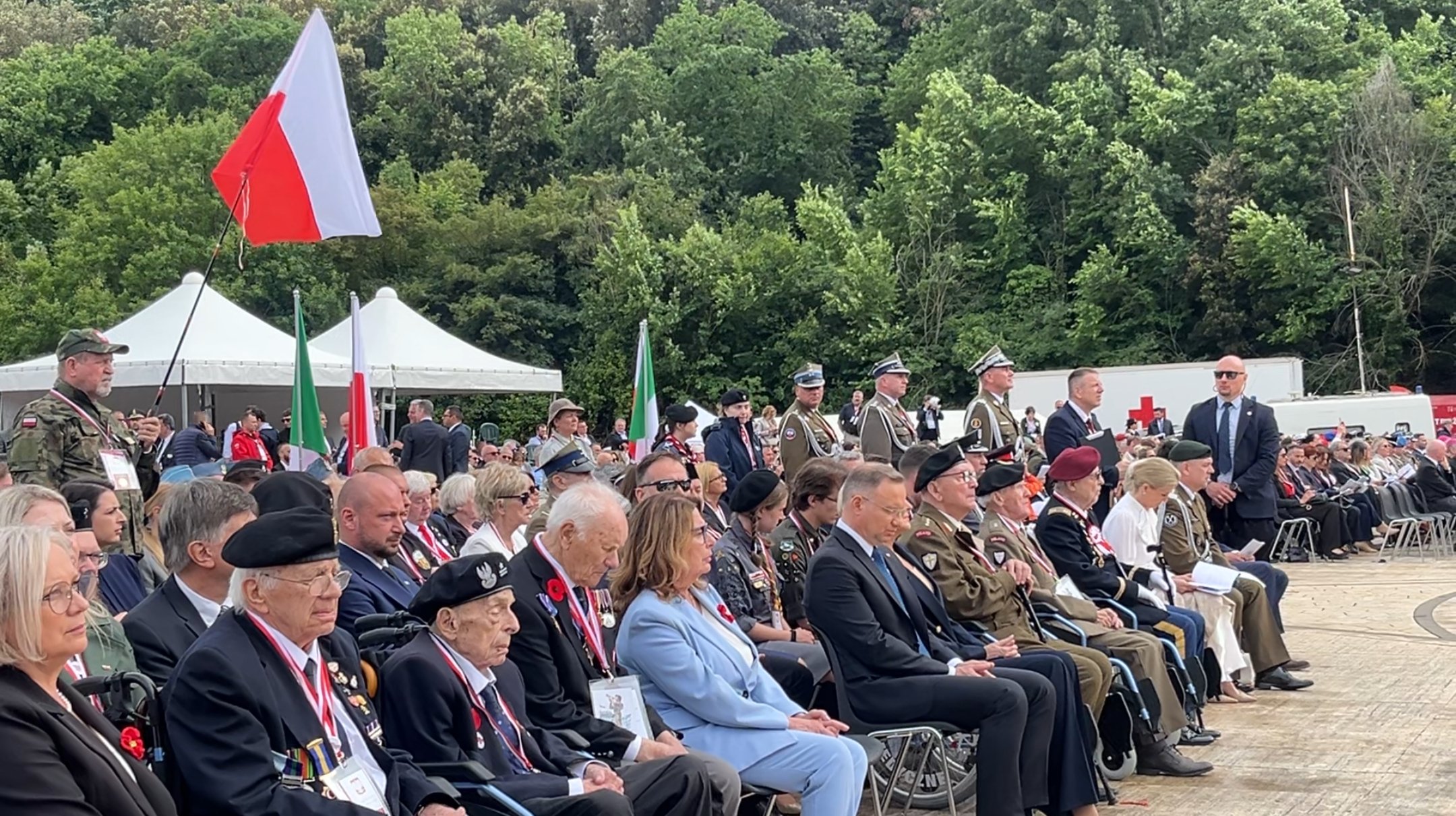At Saturday’s ceremony at Monte Cassino, Donald Tusk’s government committed significant acts of indecency. Sending the lowest possible government rank, Deputy Foreign Minister Anna Radwan-Röhrenschef, about whom we only know that she did not attend the Sejm last autumn, felt awkward in the presence of, for example, the Duchess of Edinburgh Zofia, the President of Italy Sergio Mattarelli, or the Minister of Defense of Zealand New Judith Collins, who also confirmed that as part of the ceremony she visited the Polish cemetery at this place. The maximum the Polish government could offer was to read the letter from the Minister of National Defense, but…it failed. The Ministry of Defense itself admitted that it “didn’t know why”.
There is also a letter from the minister. We don’t know the reason why it wasn’t read.
There must be a reason to ignore the memory of the Battle of Monte Cassino. Knowing this government and its awkwardness, starting from the “echo” of Minister Kierwiński through the degradation of state television into a boring station, to the elimination of Polish candidates for positions, for example, chairman of the European Union Military Committee. , well, knowing this government, This mediocrity is understandable and the poor representation on the 80th anniversary of the great battle can be attributed to it.
Another reason could be the current government’s natural carelessness towards historical policies and the memory of the heroes who fought for Polish independence. To be clear, modernity, let’s not get involved in politics (let’s build a footbridge), let’s dismantle the crosses, let’s remove classical Polish literature from the school canon – not much attention is paid to the memory of World War II and Poland’s efforts in the west.
A malicious person would say that Tusk did not want to offend the Germans by reminding, perhaps, of the bravery of his friends, but with a very embarrassing side.
However, the government’s latest move, an identity-related move, may mean more than mere carelessness or bad intentions. Perhaps today’s elites feel ready to reshape national consciousness on a larger scale. Previously, there was always something unsettling – John Paul II, the PiS government, the Smolensk Tragedy or the cult of the Damned Soldier, which mobilized the patriotic part of society. But what is it now? Who prevents the most powerful politicians in “the country” from throwing off Polish ties and, without pretense, turning to Europeanization at an accelerated pace? Do we stand? Is it possible that we are standing too unsteadily and too firmly?

“Reader. Future teen idol. Falls down a lot. Amateur communicator. Incurable student.”


![Bogusław Wołoszański: “Achieving nuclear weapons would be the beginning of World War III” [WYWIAD]](https://storage.googleapis.com/bieszczady/rzeszow24/articles/image/877236c0-66fd-457a-9eb4-41792f9077ff)




